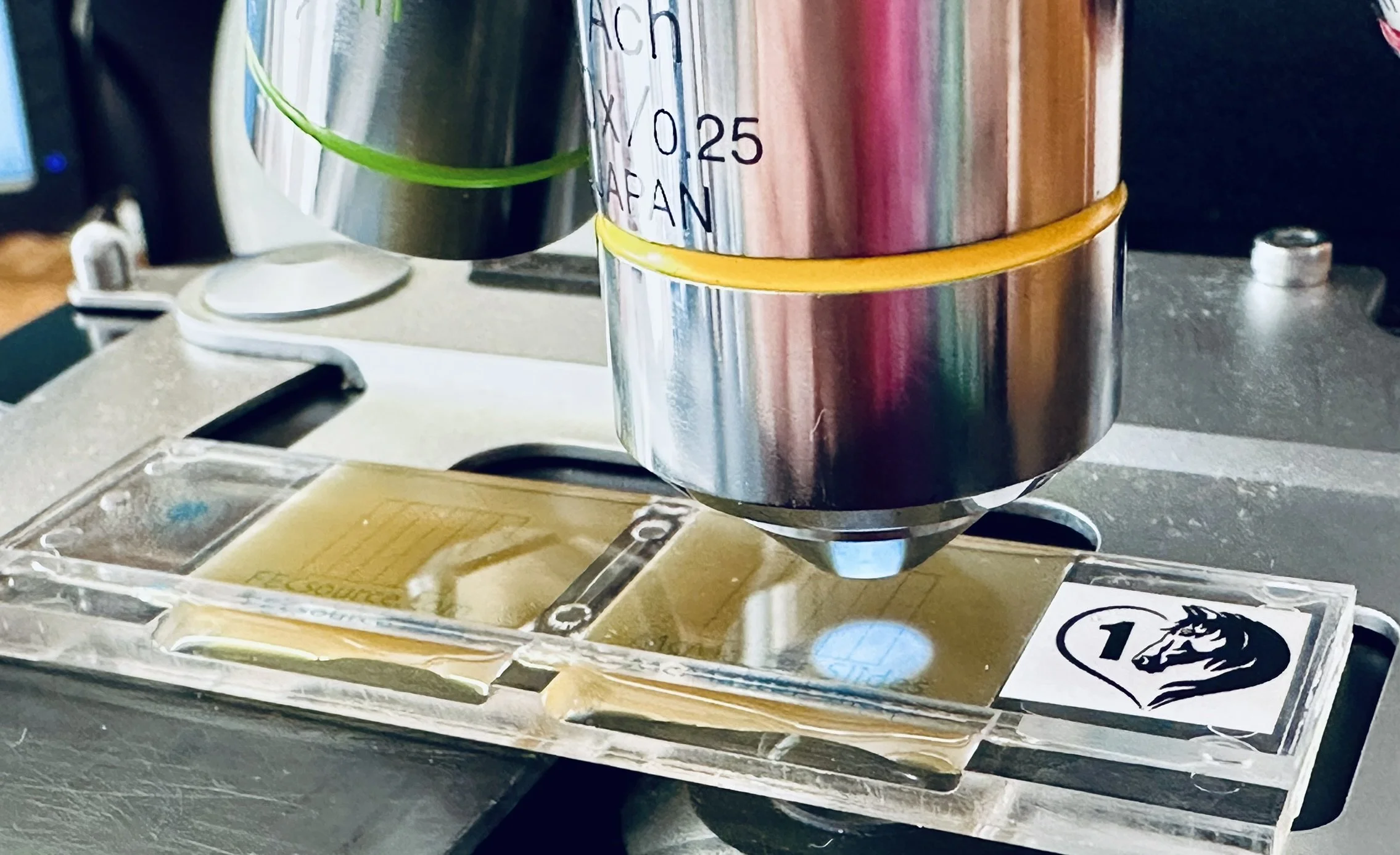Tests & Services
Faecal Worm Egg Count (FEC)
$15 per test
A simple, science-backed way to check your horse’s parasite burden before deciding to worm.
What’s included:
Testing of your horse’s manure sample for strongyle (redworm) and ascarid (roundworm) eggs
If other less common parasites are seen they will be reported
Results sent to you within 24 hours of receiving the sample
A clear explanation of the egg count (low, moderate, or high)
Personalised advice on whether treatment is recommended
Ongoing support if you have questions or concerns
Why use a FEC test?
Reduce unnecessary worming
Help slow resistance
Make smarter decisions for your horse’s health
Suitable for: Horses, ponies, minis, donkeys — any equine & even other livestock!
Faecal Egg Count Reduction Test (FECRT)
$15 per test
Wondering if your wormer is actually working?
The FECRT helps detect resistance by comparing your horse’s egg count before and after worming.
What’s included:
Two faecal egg counts:
– One taken before worming
– One taken 10 - 14 days after wormingSide-by-side comparison of egg count reduction
Clear interpretation of results
Support in understanding what it means — and what to do next
Why use a FECRT?
Identify if worms are becoming resistant to a certain active ingredient
Make smarter choices about which wormers to use
Contribute to slowing down resistance in the wider horse community
Especially helpful for horses with high or recurring egg counts
Best for: Horses with known high burdens, horses on regular worming programs, or where resistance is
Pinworm Test
$15 per test
Pinworms (Oxyuris equi) are a common but often overlooked parasite that can cause itchiness, tail rubbing, and irritation around the tail head. Because pinworms lay their eggs on the skin around the anus rather than in the gut, they will not be detected by a standard faecal worm egg count.
This targeted test uses a sticky tape method to collect a sample from the skin beneath the tail, which is then examined under a microscope to look for pinworm eggs. It’s a simple yet effective way to check specifically for pinworms when clinical signs are present.
Why test for pinworm?
Helps identify the cause of tail rubbing and perianal irritation
Detects pinworms that are missed by traditional FEC testing
Supports targeted parasite control decisions
How the test works:
A sticky tape sample is collected from around the anus (not manure) and submitted with your form
The tape is examined microscopically for pinworm eggs
You receive a clear result and interpretation to guide your next steps
If pinworm eggs are detected, this indicates an active pinworm infection. If no eggs are seen, further testing may be recommended if signs continue.
Pinworm testing can also be included in an all-worm combo with FEC and tapeworm testing.
Tapeworm Test
$25 per test (or $35 including a FEC)
Tapeworms (Anoplocephala perfoliata) are a common but often hidden threat. Unlike strongyles and roundworms, tapeworms shed eggs intermittently, so a standard FEC may miss them—even if your horse has a significant burden.
I use a tapeworm-specific testing method developed through my own parasitology training and collaboration with equine specialists, improving detection without relying on sedimentation techniques used by many labs.
Why test for tapeworms?
Can cause colic, poor condition, digestive upset, and long-term gut issues
Allows treatment only when necessary, reducing unnecessary worming and slowing resistance
How the test works:
Collect a fresh manure sample, just like a normal FEC
I perform a tapeworm-focused microscopic analysis
Results tell you if tapeworm eggs are present and guide treatment decisions
Benefits:
Detects what a standard FEC can’t
Developed in collaboration with equine parasitology specialists
Supports targeted parasite control and long-term horse health
Affordable, science-based testing done locally in Tasmania
Combo options
FEC + Tapeworm test combo – $35
A targeted combination for the most common internal parasites.
All-worm combo (FEC + Tapeworm + Pinworm tests) – $45
A comprehensive option for horses with ongoing, unclear or multiple parasite-related concerns.




